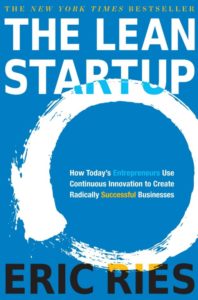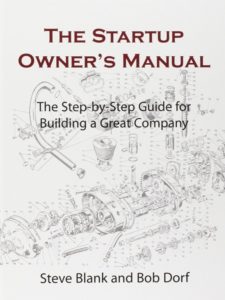The Lean Startup movement is not only a buzzword. This true multifaceted philosophy excites the minds of many entrepreneurs and all who are involved in the startup world.
What do you need to know about this concept? Let’s figure it out.
Contents
What is Lean Startup?
Let’s start with the Lean Startup definition. The Lean Startup approach is about building new businesses according to the idea that entrepreneurs must investigate, experiment, test, and iterate as they develop products.
The idea about Lean startups was originally described in the early 2000s. The Silicon Valley entrepreneurs, Steve Blank, and Eric Ries developed and promoted it and then the theory evolved into a methodology around 2010.
How Lean startups differ from traditional startups approaches?
The Lean Startup concept seems contradicting in comparison with long-held principles about how teams should maintain launching a new business.
According to the traditional idea, entrepreneurs should develop a multiyear business plan, then using it for raising money to fund product development activities. This traditional approach instructs entrepreneurs to develop their product in “stealth mode”.
The Lean method proposes to start any business by searching for an appropriate business model and then testing ideas. Here it’s rather important to adjust customers feedback as moving forward.
The Lean Startup core characteristics
The Lean management philosophy calls up entrepreneurs to continually engage in developing hypotheses that they then test among customers to get their feedback. The feedback is used for re-engineering their products.
Lean startup advocates Agile concepts adapted from the world of software development. This startup method requires developing a minimum viable product (MVP) that they can test. It advocates for entrepreneurs to adjust their products based on customer feedback.

Why Lean Startup changes everything?
This question was asked by Steve Blank in his article of the same name. He wrote it 5 years ago and now the article is still relevant and popular among entrepreneurs all over the world.
The author claims that Lean startup practices look good not only for young tech ventures. Large companies have also begun to successfully implement them. The Lean Startup movement makes the process of starting a company less risky.
Traditional methods highlighted creating a business plan as the first thing every founder must do. Steve defines three things about the business plan:
- Business plans rarely survive first contact with customers.
- Typically, a business plan is a fiction.
- Startups are not smaller versions of large companies.
The Lean approach includes 3 essential principles:
- Entrepreneurs accept that untested hypotheses are everything they have on day one. The founders summarize these hypotheses in the business model canvas that let us look at all nine building blocks of the business on one page.
- Lean startups use customer development to test their hypotheses. It’s about feedback on all elements of the business model. During customer development, startups search for a business model that works. Every stage of customer development is iterative.
- Lean startups practice Agile development that eliminates wasted time and resources by developing the product iteratively and incrementally. The method results in fewer failures than using traditional methods.
Lean Startup: from theory to practice
The feedback that a startup gets can be qualitative (which product options you like and which don’t) or quantitative (how many customers use the product, the number of registered users).
Understanding what helps create a working business for a startup is much more important than awards and media attention.
The “create-evaluate-learn” feedback loop lies at the heart of the concept of an economical startup. The most important idea about startup management is to strive to reduce the feedback cycle time. All elements of this cycle deserve attention equally.
What is the best book about Lean Startups?
The history of the Lean methodology began with several publications that helped to popularize the concept.
The most recognized the book “The Lean Startup” by Eric Ries.
Eric Ries, Lean Startup
This highly acclaimed book for new startups is considered to be one of the core business books that revolutionized the business environment over this last decade. The author has combined everything to the core basic principles of being Lean and Agile in response to customer feedback.

According to Ries, there are two main reasons for startup failures:
- Passion for traditional business plans, strategy building, comprehensive market research. But the problem is that in conditions of complete uncertainty in which startups operate, these classic management methods do not work.
- The second reason may seem completely opposite to the first – seeing that traditional management approaches do not work, entrepreneurs generally refuse any management tools. They let things go by themselves.
He proposes a very dynamic and structured book that mainstreams the Lean approach that is aimed to change the way companies are built and new products are launched.
The Lean Startup concept will foster companies that are more capital efficient and that leverage human creativity more effectively, the author suggests. The book will open your eyes to things you may have not realized before.
If you want to read more books about the Lean Startup methodology, feel free to study the following books:

- Running Lean: Iterate from Plan A to a Plan That Works by Ash Maurya
- Lean Analytics: Use Data to Build a Better Startup Faster by Alistair Croll
- The Lean Product Playbook: How to Innovate with Minimum Viable Products and Rapid Customer Feedback by Dan Olsen
- The Lean Enterprise: How Corporations Can Innovate Like Startups by Trevor Owens
Final words
Many business success stories have the following path: inspiration – a brilliant idea – a struggle – a dizzying leap – team gathering -deals – and success.
Act wisely and apply the Lean Startup concept, studying the experience of others. You will definitely avoid unnecessary expenses, and grow your business using this outstanding and winning method.





